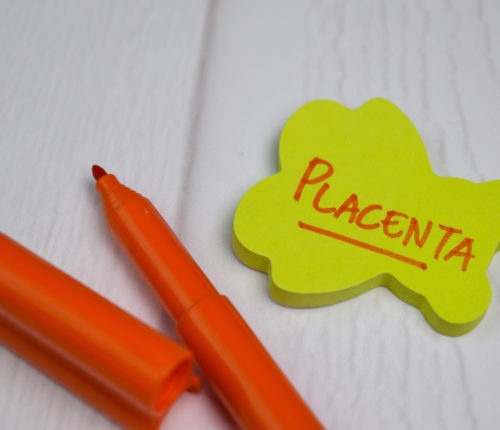
Does COVID-19 Affect a Pregnant Woman’s Placenta?
We are now months into the COVID-19 pandemic, and we know a bit more about how the coronavirus affects certain patients. But researchers are still examining exactly how the coronavirus impacts pregnancy, labor, delivery and the risk to infants. One new study specifically examines whether the novel coronavirus COVID-19 can affect the placenta.
Does COVID-19 Affect the Placenta?
Researchers recently conducted a study examining the placentas of women who tested positive for COVID-19. The study, which is published in the American Journal of Clinical Pathology, is one of the largest studies examining placentas of women with coronavirus.
The study included 16 participants who tested positive for COVID-19. Of those, 15 delivered their babies during the third trimester. One suffered a miscarriage during the second trimester. Researchers then compared the placentas of the 16 women to that of 17,479 women who did not have the virus.
The women who did not have COVID-19 had other conditions that required a placental examination after birth, such as preeclampsia or pre-term birth. The results show that 80 percent of the women who tested positive had a placental injury called “maternal vascular malperfusion.” This condition causes insufficient blood flow between the mother and infant.
The 80 percent is in contrast to 44 percent of all other controls considered in the study. The damage that researchers note include blood clots, small placentas and signs of abnormal blood flow. Placentas of women with COVID-19 also showed signs of “intervillous thrombi”, a certain type of blood clot within the placenta. Other research shows that some patients with COVID-19 experience clotting problems, which makes this a particular concern.
Researchers note that the study does not prove that the coronavirus caused damage to the placentas. There are other conditions and complications of pregnancy that can lead to damage. Such conditions include cytomegalovirus, Zika virus and other infections. These conditions can lead to problems during pregnancy, birth or after birth.
COVID-19 and Pregnancy Outcomes
Study authors note that there is a risk that some pregnancies may be affected by COVID-19 and some pregnancies could be compromised. Researchers agree that pregnant women should be carefully monitored, especially if they test positive for COVID-19. Recommendations for monitoring include ultrasounds to measure the infant’s growth, as well as non-stress tests that examine how the placenta is performing.
We know that pregnant women are more vulnerable to the coronavirus because it is a respiratory infection, which is a risk factor among pregnant women. We also know that some research suggests that the coronavirus can be transmitted between mother and unborn child. Of course, there is reason for pregnant women to be concerned.
However, most research studies show that pregnant women who test positive for COVID-19 still have healthy babies. In many cases, those babies test negative and show no symptoms of the virus. In the placenta study, all but one of the women studied had healthy babies at term.
While every bit of research helps put together a greater picture of COVID-19 and how it affects patients, there is still a lot that we don’t know about the virus. Researchers are continuing to analyze data and study COVID-19. Ultimately, we need more research to examine exactly how COVID-19 may affect pregnancy and interact with other pregnancy conditions, such as a tear in the placenta, placental abruption or placental insufficiency.
Sources:

